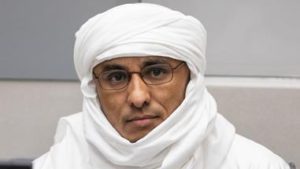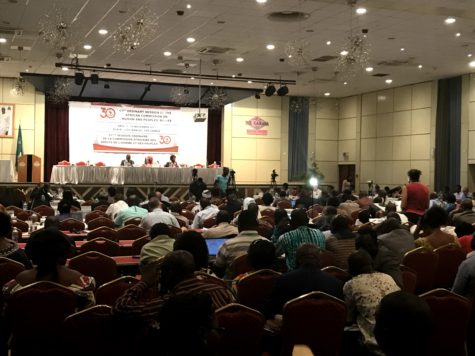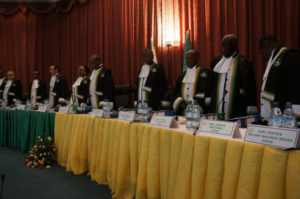By: Madison Kenyon
Impunity Watch Staff Writer
TIMBUKTU, Mali — On September 30, 2019, the Pre-Trial Chamber I of the International Criminal Court (“ICC”) issued a unanimous decision confirming the charges brought against Al Hassan Ag Abdoul Aziz (“Al Hassan”). These charges include both crimes against humanity and war crimes. This decision, however, merely commits Al Hassan to trial before the Trial Chamber, it does not necessarily confirm he is guilty.

These charges arise from Al Hassan’s involvement with the Islamic militant group, Ansar Dine. This rebel group took control of Timbuktu in 2012 and enforced strict religious rules, including the ban of music and the destruction of non-Muslim religious sites. Al Hassan became the de facto chief of police and oversaw the enforcement of these rules. While serving as chief of police, Al Hassan allegedly also forced hundreds of women into sexual slavery.
The ICC issued a warrant for Al Hassan’s arrest on March 27, 2018 and he surrendered to the ICC four days later, on March 31. The hearing in front of the Pre-Trial Chamber occurred between July 8 and July 17, 2019. During the hearing, the prosecutor introduced the specific crimes Al Hassan is charged with, most of which stem from the widespread and systematic attack by armed groups against the civilian population of Timbuktu between April 1, 2012 and January 28, 2013, and include torture, rape, sexual slavery, cruel treatment and other inhumane acts, such as forced marriages and persecution. The prosecutor emphasized that due to Al Hassan’s actions and Ansar Dine’s control of Timbuktu, the civilians of Timbuktu “were subjected to a climate of constant fear and repression.”
Many nonprofit organizations are quite happy with the Pre-Trial Chamber’s decision in confirming these charges. For example, Melinda Reed, the Executive Director of Women’s Initiative for Gender, stated, “[This decision] is another step in a positive evolution. Every decision matters. We are writing the jurisprudence of the future now, so every case and every step is extremely important with regards to gender based and sexual crimes.” However, many organizations believe the ICC is not doing enough, and rather they criticize the court for going after Al Hassan because he is an intermediate leader of Ansar Dine and not a high-level person of this rebel group.
Although a trial date has not yet been set, the Pre-Trial Chamber has authorized 880 victims to participate in the trial and provide testimony against Al Hassan. Thus, many should expect a long and emotional trial.
For further information, please see:
Reuters – International Criminal Court Puts Mali War Crimes Suspect to Trial – 30 Sept. 2019
Courthouse News Service – Timbuktu Man Fights War Crimes Charges in UN Criminal Court – 11 July 2019


